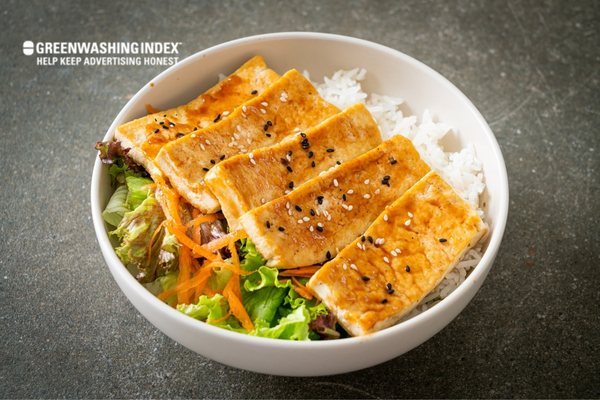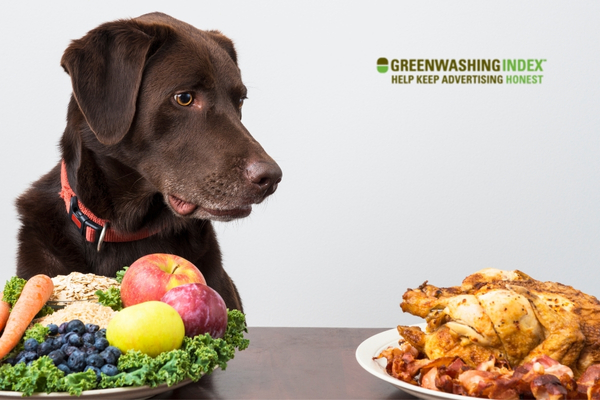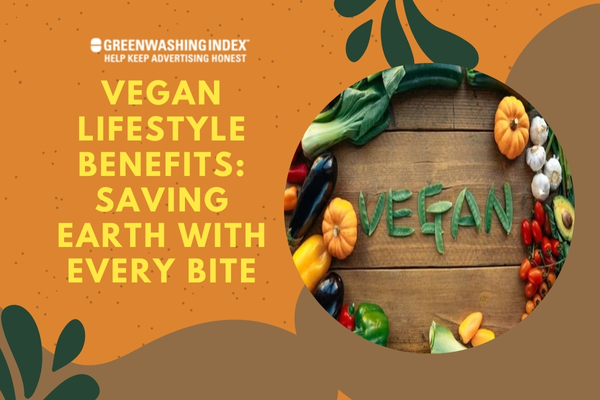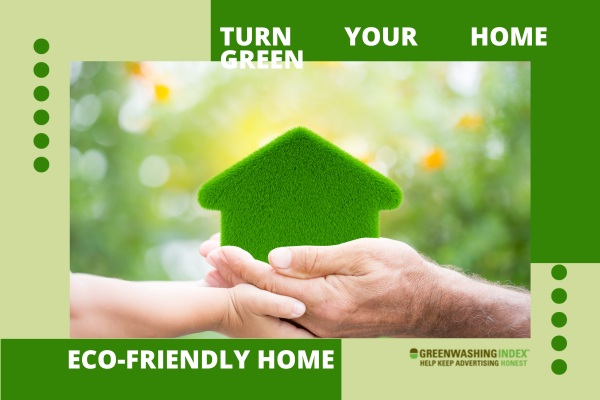Have you ever thought about how your food choices impact the world around you? I’m here to explore the vegan lifestyle and its amazing power to heal our planet. Imagine a world where clear skies, lush forests, and vibrant wildlife are the norm. That’s what going vegan can help achieve.
By choosing a plant-based diet, you’re not just taking care of your health; you’re also doing a huge favor to Mother Earth. Being vegan means less land used for farming animals, fewer greenhouse gases, and conserved water resources. It’s like giving nature a big helping hand!
What You Glean from This Article:
- Clear insights into how vegan choices benefit our planet
- Eye-opening statistics on the environmental impact of diets
- Easy-to-understand explanations on why plants trump meat for sustainability
- Tips for reducing your own carbon footprint with smart eating choices
The Direct Impact of a Vegan Lifestyle on Our Planet
Going vegan is not just about the food on my plate. It’s much bigger than that. When I chose to live a vegan lifestyle, it meant I was making eco-conscious choices every day that significantly helped our planet.

The Environmental Benefits of Veganism
Living vegan has more than one way to help our home, Earth. First off, when I follow a plant-based diet, less land is needed to grow my food compared to raising animals for meat.
Growing plants takes up much less space and often requires less water and resources. What does this mean? It means there is more land left for nature – for forests, for wild animals, and plants that are vital for the Earth’s health.
Secondly, animals like cows and sheep produce a lot of gas – methane – which warms up our planet. When fewer animals are raised because there’s lower demand from people like me choosing tofu over steak, then there’s less methane entering the air.
Another point is about waste. Farming animals make lots of waste that pollutes rivers and soils. By eating plants directly, I am part of cutting down this pollution, too.
Quantifying Veganism’s Positive Effects
The good things about being vegan are not just ideas; they have real numbers behind them:
- Studies show that farming plants can feed more people using the same amount of land compared to if we used it all to raise cows or pigs.
- Scientists tell us that by avoiding meat and dairy products as vegans do, we can reduce our individual carbon footprint from food by up to 73 percent.
- Adopting plant-based diets could help reduce greenhouse gas emissions by two-thirds and prevent climate-related damages totaling about $1.5 trillion.
These aren’t small numbers; they’re huge! A single person changing what they eat might seem small but think if many people made eco-conscious choices just like me.
Every meal matters because each time I pick veggies over veal or lentils over lamb chops – I am actually fighting against climate change with my fork! Pretty amazing thing when you think about it like that, right?
Also Read: Composting Bread: Unveiling the Truth About Bread Waste
Contributions of Animal Agriculture to Environmental Degradation
When I talk about the ways a vegan lifestyle can help the environment, one major point that stands out is how animal agriculture adds to environmental harm. Here’s why this is important: raising animals for food isn’t just about the land they live on; it affects our whole planet in ways that many of us may not even realize.
The Hard Facts: Livestock and Greenhouse Gas Emissions
Livestock—like cows, pigs, and chickens—are a big source of greenhouse gases. These gases trap heat in the atmosphere and make our planet warmer. Warmer temperatures can lead to all sorts of problems, from stronger storms to longer droughts.
- Methane: Cows and sheep produce methane when they digest their food. Methane is a greenhouse gas that’s way more powerful than carbon dioxide at making the Earth hotter.
- Nitrous Oxide: This gas comes from animal manure. Like methane, nitrous oxide has an even bigger effect on global warming than carbon dioxide does.
- Carbon Dioxide: When forests are cleared to create grazing land for livestock or to grow crops just for animal feed, lots of carbon dioxide gets released into the air because trees that absorb it are cut down.
So you see, raising animals for food contributes quite a bit to these gases that heat up our planet. But by choosing a vegan lifestyle and eating plant-based foods instead, I’m helping reduce these harmful emissions. It’s one way my choices can lead to cleaner air and a cooler planet.
Unsustainable Land Use and Deforestation
Now let’s talk about land use and deforestation:
Raising animals needs lots of land—not just where the animals live but also big areas to grow their food, like corn and soybeans. To get this space, people often cut down forests, which leads to fewer trees around.
Trees are really important because:
- They absorb carbon dioxide—which is great because it means less of it in the air heating up our world.
- They give us oxygen—we need this to breathe!
- They’re home to wild animals—without trees, these creatures lose their homes.
But when we switch over to eating plant-based foods:
- We don’t need as much land since plants like veggies take up less space than raising animals.
- Fewer trees need cutting down, thus keeping more green cover.
- We protect forest habitats for wild creatures—so there’s no need for them to find new homes or, worse… vanish forever.
The High Cost of Water Consumption in Animal Farming
When I choose to follow a vegan lifestyle, I think a lot about water. You might wonder what water has to do with being vegan. Well, the truth is that picking plants over animals can save a whole lot of water. Here’s why:
- Growing Plants Takes Less Water Than Raising Animals: To make one pound of wheat, we need much less water than to make one pound of beef. It’s like filling up a bathtub for wheat versus a whole swimming pool for beef!
- Animals Need Water to Drink and Grow: Think about it – cows and pigs need water every day, just like us. They also eat crops that need watering—so it’s double the trouble.
- It Adds Up: If you consider all the food they eat and all the time until they are big enough for farming, farm animals end up using a ton of water.
Here’s the thing: choosing veggies over meat doesn’t just help my body; it helps our rivers and lakes, too. Crops such as lentils and beans are amazing because they don’t ask for much water yet give back so many nutrients.
Energy Dynamics: From Feedlot to Fork
Ever think about how much energy goes into your dinner before it reaches your plate? Being eco-conscious means looking at everything – how food is grown or raised, how far it travels, and even how much waste it creates. So, let’s talk about energy in meat production versus plants:
- Raising Animals Is energy-hungry; picture this – you’re feeding loads of grain to animals just so they grow big enough for us to eat later on. These grains could feed more people if we ate them directly!
- First, growing feed for animals takes lots of energy.
- Second, keeping farm buildings running sucks up more power.
- Finally, moving meat from farms to stores needs fossil fuels for trucks.
- On the other hand, growing plants use less energy from start to finish:
- Plants get their energy directly from the sun — super clean and free!
- They don’t need as many steps before they’re ready for us to eat.
In short, When I live by my vegan lifestyle credo and munch on plant-based meals instead of chowing down on meats or dairy products at mealtimes—like sandwiches filled with fresh veggies instead of slices packed with ham—I’m really doing Earth a favor. It saves power big time!
Also Read: Ink Cartridge Recycling: Your Ultimate Green Guide
Envisioning a Greener Future Through Vegan Choices
When I think about how I live and the choices I make, it really hits home that little thing can have a big impact. Choosing to follow a vegan lifestyle is one of those things. It’s not just about food; it’s about wanting a better, cleaner world for everyone.

Carbon Footprint Reduction by Going Vegan
So, what’s this all about saving the planet by eating plants? A “carbon footprint” is like a mark each of us leaves on Earth. It comes from everything we do that sends carbon dioxide (CO2) into the air. This gas acts like a blanket over the planet, making it warmer than it should be.
Here’s where vegan living steps in:
- Farming animals is a top source of CO2, But when you take on a vegan lifestyle, you say no to supporting these big farms.
- Methane matters: Cows and other farm animals let out methane—a gas much worse than CO2- to heat up our planet.
- Room to grow: Forests get cut down for animal farms and growing their food. If we grew plants for people instead, we’d need less land and save lots of trees.
- Less pollution: Big animal farms don’t just make greenhouse gases; they also spoil water and soil with chemicals and waste.
By picking plants over meat, each person can shrink their carbon mark pretty significantly. Some folks have calculated that going vegan cuts an individual’s carbon footprint by an impressive 50%. That means half as much CO2 would be messing with our air if everyone ate veggies instead of beef.
Water Conservation Wins with Plant-Based Diets
Now, let’s dive into something else super important: water! Did you know that growing plants takes way less water than raising animals? Here’s why switching to plant-based meals can be like hitting the jackpot in the game of saving water:
- Thirsty Animals: Big animals drink lots of water—way more than plants do to grow.
- Animal Feed: Remember all those crops grown just to feed farm animals? They use up heaps of water, too!
- Efficiency: Plants are amazing at turning water into food—we get more bites per drop compared to feeding through animals.
In numbers? Well, producing just one pound of beef can use over 1,800 gallons (about 6,814 liters) of water! Switching to grains or veggies drops that number massively—down by more than 90%. That’s buckets upon buckets saved!
Sticking with fruits and vegetables isn’t only good for my health—it’s incredible for our rivers, lakes, and even our big blue oceans, too!
Living as a vegan feels great because I know every meal I eat has me doing my part for Mother Earth—keeping her skies clear and her waters clean!
Also Read: Flexitarian Diet Explained: Easy Guide for Beginners
Obligations Toward Wildlife and Biodiversity Preservation
As someone who cares about our home, the Earth, I know there’s a lot each of us can do to protect it. It’s easy to forget that our actions have effects on wildlife and the many different kinds of living creatures.
There is one choice that has caught my attention: adopting a vegan lifestyle. This means eating only plant-based foods—no meat, dairy, or other animal products.
How Does Being Vegan Safeguard Species Diversity?
When I talk about a vegan lifestyle, it’s not just about what we eat or wear; it’s also about making choices that don’t hurt nature. Here are ways being vegan can defend the variety of life out there:
- Less Land Clearing: Lots of forests are cut down to create space for animals like cows and chickens to live until they are used for food or their milk or eggs. By not eating these animal products, fewer trees are chopped down. Trees are homes for birds and insects, so when they stand tall and healthy, all these little lives flourish.
- Saving Habitats: The same forests that get cut down for farms also often have rare animals living in them—think of colorful parrots or even tigers! If we stick to plants on our plates, these big wild areas can stay as they are—a safe place where all sorts of creatures can make their homes.
- Preventing Overfishing: In the waters, fish face a big problem: too much fishing! Some fish species have become very rare because so many have been caught. Going vegan means not eating fish either, which helps give ocean life a break and lets fish numbers grow back again.
- Reducing Pollution: Believe it or not, farms with lots of animals on them can make quite a mess! They produce gases and waste that can harm plants and streams nearby — hurting frogs and fish—and make the air stinky, too! Eating plant-based means fewer animal farms are needed, which makes air and water cleaner for everyone.
- Fighting Climate Change: We often hear about how important this is: keeping our planet from getting too hot so every kind of life has its best chance to survive long into the future.
Eating vegan cuts down on gases from farms that contribute to warming up our atmosphere—helping polar bears keep their icy homes!
By joining in this climate-friendly habit of choosing veggies over veal or beans over bacon at meal times, I’m giving wildlife around me a safer world to live in while ensuring all those different kinds of animals stay around for generations ahead.
So when people ask how being vegan helps the environment—I say by sticking with plant-based diet choices every day—I’m keeping forests full of green leaves rustling with life and oceans sparkling with color under waves where unique fishes swim peacefully—it’s one eco-conscious choice where my fork becomes a powerful tool for sustainable living.
FAQs
What is the most significant environmental change I can make
personally?
The biggest change you can make is adopting a vegan lifestyle. It reduces your carbon footprint and slows resource depletion.
How does being vegan reduce my carbon footprint?
Being vegan cuts greenhouse gas emissions from food production, as plants need fewer resources than animals to grow and provide more efficient nutrition.
Can becoming vegan truly make an impact on global warming?
Yes, a collective move towards a plant-based diet can significantly lower the strain on our environment, hence slowing global warming.
Conclusion
In closing, moving towards a vegan lifestyle holds immense potential for nurturing the environment. By choosing plant-based foods, I take a tangible stand for sustainable living and actively reduce my ecological footprint.
Each vegan meal is a testament to eco-conscious choices and inflicts minimal damage on our precious planet. Environmentally speaking, it’s akin to casting a vote for the world I want to live in – one that respects biodiversity and prioritizes climate-friendly habits.



